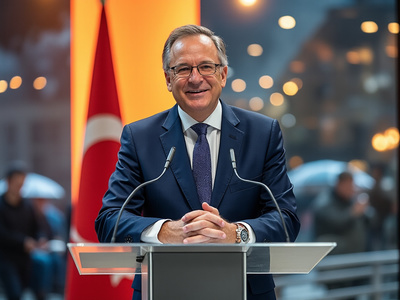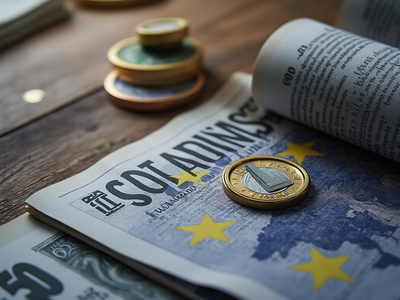
Debate Continues on Horizontal Anti-Discrimination Directive as MEPs Oppose Possible Withdrawal
European lawmakers express strong opposition to the withdrawal of a key anti-discrimination directive during a debate with the Commissioner for Equality.
During a recent debate in the Civil Liberties Committee (LIBE), Members of the European Parliament (MEPs) discussed the potential withdrawal of the Horizontal Anti-Discrimination Directive, a proposal aimed at extending EU anti-discrimination protections beyond the workplace.
Commissioner for Equality, Hadja Lahbib, reaffirmed the European Commission’s commitment to equality but noted the requirement of Council unanimity under Article 19 of the Treaty on the Functioning of the European Union (TFEU) for the adoption of the draft law.
The Commissioner indicated that the Commission is currently awaiting formal written responses from both the European Parliament and the Council before reaching a decision on the directive's potential withdrawal.
A significant majority of MEPs voiced their strong opposition to the withdrawal, urging the Commission to explore options for compromise and emphasizing the directive's critical role in addressing legislative gaps related to discrimination.
MEPs also requested clarification on the steps necessary for Parliament to reconsider the Commission's plans.
Lahbib confirmed that no final decision regarding the directive's status would be made before August 2025, and it remains listed among proposals for potential withdrawal in the Commission's work programme.
The Horizontal Anti-Discrimination Directive, initially proposed in 2008, aims to expand protections against discrimination to domains such as social protection, education, and access to goods and services but remains stalled due to a lack of consensus in the Council after 17 years of negotiations.
In another legislative initiative, the European Parliament has endorsed new rules for screening foreign investment within the bloc.
The new regulations aim to identify and mitigate security risks associated with foreign investments in critical sectors such as media, raw materials, and transportation infrastructure.
Under the revised framework, member states will be required to conduct mandatory screenings of foreign investments to assess potential impacts on security and public order.
The European Commission will have enhanced authority to intervene when discrepancies arise between member states regarding these investments.
Should a screening authority determine a foreign investment poses threats to security or public order, it can authorize the investment conditionally or prohibit it altogether.
This proposal received substantial support in the Parliament, passing with 378 votes in favor, 173 against, and 24 abstentions.
MEPs have also called for the establishment of a new European agency tasked with combatting foreign disinformation, particularly concerning Russian interference in elections.
According to Tomas Tobé, MEP and rapporteur for the European Parliament's special committee on the European Democracy Shield, this agency would function as an information hub to support EU member states in addressing foreign information manipulation.
The European Commission has acknowledged the necessity of countering foreign information manipulation and has included a proposal for a European Democracy Shield in its work programme for 2025. However, it remains uncertain whether the Commission will endorse the creation of this new agency.
Furthermore, the EU is reportedly preparing to designate only four countries—Belarus, North Korea, Myanmar, and Russia—as high risk for deforestation under its anti-deforestation law.
This decision has been shaped by diplomatic considerations, particularly concerning major commodity exporters like Brazil and Indonesia, which lobbied to avoid inclusion on the list.
The classification aims to inform due diligence requirements for companies importing commodities such as cocoa and soy, thereby regulating the impact of global supply chains on deforestation.
Environmental organizations have expressed concerns regarding the adequacy of this approach and its implications for human rights and environmental standards.
Finally, the European Commission is working to reduce bureaucratic obstacles related to energy regulation.
This initiative seeks to streamline existing laws that hinder the competitiveness of European businesses when compared to countries like China and the United States.
Countries within the EU are expected to support the integration of energy policies into these simplification efforts, although dissenting views have emerged, most notably from Hungary and Slovakia, regarding plans to phase out Russian gas imports.
These ongoing negotiations highlight the complexities of EU energy policy as members balance regulatory reform with national interests and economic considerations.
Commissioner for Equality, Hadja Lahbib, reaffirmed the European Commission’s commitment to equality but noted the requirement of Council unanimity under Article 19 of the Treaty on the Functioning of the European Union (TFEU) for the adoption of the draft law.
The Commissioner indicated that the Commission is currently awaiting formal written responses from both the European Parliament and the Council before reaching a decision on the directive's potential withdrawal.
A significant majority of MEPs voiced their strong opposition to the withdrawal, urging the Commission to explore options for compromise and emphasizing the directive's critical role in addressing legislative gaps related to discrimination.
MEPs also requested clarification on the steps necessary for Parliament to reconsider the Commission's plans.
Lahbib confirmed that no final decision regarding the directive's status would be made before August 2025, and it remains listed among proposals for potential withdrawal in the Commission's work programme.
The Horizontal Anti-Discrimination Directive, initially proposed in 2008, aims to expand protections against discrimination to domains such as social protection, education, and access to goods and services but remains stalled due to a lack of consensus in the Council after 17 years of negotiations.
In another legislative initiative, the European Parliament has endorsed new rules for screening foreign investment within the bloc.
The new regulations aim to identify and mitigate security risks associated with foreign investments in critical sectors such as media, raw materials, and transportation infrastructure.
Under the revised framework, member states will be required to conduct mandatory screenings of foreign investments to assess potential impacts on security and public order.
The European Commission will have enhanced authority to intervene when discrepancies arise between member states regarding these investments.
Should a screening authority determine a foreign investment poses threats to security or public order, it can authorize the investment conditionally or prohibit it altogether.
This proposal received substantial support in the Parliament, passing with 378 votes in favor, 173 against, and 24 abstentions.
MEPs have also called for the establishment of a new European agency tasked with combatting foreign disinformation, particularly concerning Russian interference in elections.
According to Tomas Tobé, MEP and rapporteur for the European Parliament's special committee on the European Democracy Shield, this agency would function as an information hub to support EU member states in addressing foreign information manipulation.
The European Commission has acknowledged the necessity of countering foreign information manipulation and has included a proposal for a European Democracy Shield in its work programme for 2025. However, it remains uncertain whether the Commission will endorse the creation of this new agency.
Furthermore, the EU is reportedly preparing to designate only four countries—Belarus, North Korea, Myanmar, and Russia—as high risk for deforestation under its anti-deforestation law.
This decision has been shaped by diplomatic considerations, particularly concerning major commodity exporters like Brazil and Indonesia, which lobbied to avoid inclusion on the list.
The classification aims to inform due diligence requirements for companies importing commodities such as cocoa and soy, thereby regulating the impact of global supply chains on deforestation.
Environmental organizations have expressed concerns regarding the adequacy of this approach and its implications for human rights and environmental standards.
Finally, the European Commission is working to reduce bureaucratic obstacles related to energy regulation.
This initiative seeks to streamline existing laws that hinder the competitiveness of European businesses when compared to countries like China and the United States.
Countries within the EU are expected to support the integration of energy policies into these simplification efforts, although dissenting views have emerged, most notably from Hungary and Slovakia, regarding plans to phase out Russian gas imports.
These ongoing negotiations highlight the complexities of EU energy policy as members balance regulatory reform with national interests and economic considerations.
AI Disclaimer: An advanced artificial intelligence (AI) system generated the content of this page on its own. This innovative technology conducts extensive research from a variety of reliable sources, performs rigorous fact-checking and verification, cleans up and balances biased or manipulated content, and presents a minimal factual summary that is just enough yet essential for you to function as an informed and educated citizen. Please keep in mind, however, that this system is an evolving technology, and as a result, the article may contain accidental inaccuracies or errors. We urge you to help us improve our site by reporting any inaccuracies you find using the "Contact Us" link at the bottom of this page. Your helpful feedback helps us improve our system and deliver more precise content. When you find an article of interest here, please look for the full and extensive coverage of this topic in traditional news sources, as they are written by professional journalists that we try to support, not replace. We appreciate your understanding and assistance.










